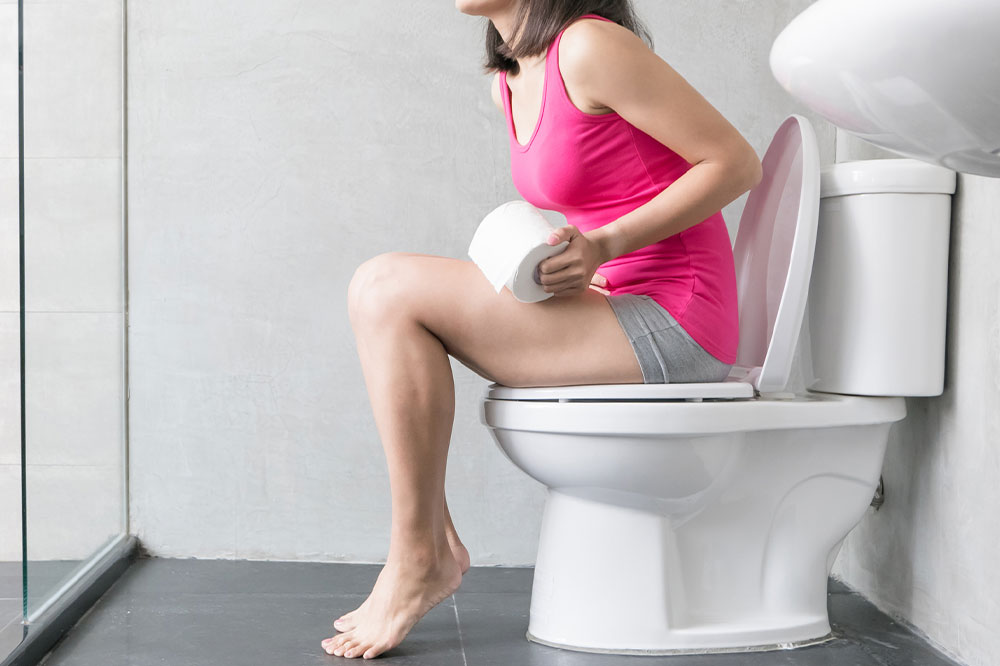
Avoid these 9 mistakes for a healthy bladder
A healthy bladder is crucial for one’s overall well-being. As a critical part of the urinary system, the bladder works coordinately with the kidneys to eliminate waste and toxic substances from the bloodstream. Therefore, keeping this vital organ healthy is essential. From low physical activity to dehydration, there are several factors that can compromise the function of the bladder. So, paying attention to the overactive bladder and avoiding common mistakes is essential.
Significance of a healthy bladder
The bladder is a muscular sac-like and expandable organ that stores urine. When the bladder is in optimal condition, it performs complex coordination of musculoskeletal, psychological, and neurologic functions. Apart from removing wastes, a healthy bladder has various responsibilities, such as,
- Maintaining stable electrolyte levels, including phosphate and sodium
- Preventing toxins and excess fluid from accumulating in the body.
- Producing specific hormones that aid in blood pressure regulation.
- Enhancing the production of red blood cells and the strong development of bones
Common mistakes to avoid to maintain a healthy bladder
Most young individuals fail to maintain bladder health. And as one grows older, the elastic bladder tissue toughens and becomes less stretchy, causing the bladder to hold enough urine. This can further make one more susceptible to various bladder-related conditions such as overactive bladder, urinary tract infection, and bladder cancer.
Therefore it is imperative to understand the impacts of lifestyle and food habits on the health of the bladder. Here is a list of the common mistakes to avoid excess pressure on the bladder.
Ignoring Kegel exercises
Kegel exercises are the best strengthening stretches for pelvic muscles, which aid in improving the function of the uterus, bowels, and bladder. However, many people either ignore these exercises or do not perform them properly. To avoid this, you can speak with a physical therapist or practitioner to learn the right techniques to do the exercises.
Pushing oneself to the state of dehydration
Drinking water and staying hydrated are the primary factors in maintaining bladder health. However, when one gets dehydrated due to restricting fluid intake, it will accumulate sodium and toxins in the body.
This will eventually lead to bladder pain and the development of kidney stones. Therefore, experts recommend drinking at least 1.5 to 2 liters of water daily to ensure the proper functioning of the bladder.
Sitting still for a long period
Sitting in the same position for a long time might affect the health of your bladder. Even though there is no definite reason for the direct impact, reduced or limited physical activity will increase blood pressure, affecting bladder health. One must focus on following a daily exercise routine that includes activities like walking, cycling, running, and swimming, among others.
Excessive intake of caffeinated or carbonated beverages
Drinking excess amounts of carbonated or fizzy drinks can increase the risk of developing an overactive bladder or incontinence. These drinks are loaded with artificial sweeteners or high sugar that can irritate the bladder muscles, resulting in urinary leakage.
Eating processed or spicy foods
Paying attention to food habits plays a vital role in maintaining the good health of your bladder. Processed foods are high in sodium and phosphorus content, which can adversely affect the bladder and kidneys. On the other hand, acidic or spicy foods can trigger irritation in bladder muscles.
In addition, other food choices like chocolate, citrus foods, and artificial sweeteners in certain food items can increase the development of potential symptoms of bladder issues. In such circumstances, you can include fresh fruits such as pears, bananas and vegetables, nuts, whole grains, nuts, and eggs.
Holding up for a long time
Holding the pee cannot be avoided in certain situations, like during long rides. However, making it a habit or purposely ignoring nature’s call can cause more harm to the bladder. Such mistakes can lead to other chronic conditions like urinary tract infections (UTIs), kidney stones, and foul-smelling urine. Therefore, urinating whenever the bladder feels full is more important.
Ignoring the recurrent episodes of UTIs
Urinary tract infections happen when bacteria or other pathogens enter the urethra, infecting the urinary tract (kidneys and bladder). It includes symptoms such as a painful or burning feeling during urination, frequent need to urinate, or foul-smelling urine. Even though they are common, especially in women, frequent episodes should be treated immediately. However, when left untreated, it might lead to severe scarring in the bladder or prostate cells.
Excess or regular intake of vitamin C
Excess intake of vitamin C supplements can affect the health of the bladder, causing kidney stones and other related problems. The recommended vitamin C intake is around 90 milligrams per day for adults. When one exceeds the level, vitamin C converts into oxalate, eventually accumulating in the urine. Therefore, try to include vitamin C through fresh fruits and vegetables instead of supplements.
Ignoring healthy urinating habits
Always take time to empty the bladder while urinating. When in a rush, one may not empty the bladder. The accumulated urine can cause a bladder infection. To avoid this, stay relaxed, and make it simple for bladder muscles to flush out the urine completely. Also, use products like pee-safe sprays and other sanitary tools when using public toilets.
The bladder is a critical organ; however, its health is often overlooked, which might result in severe complications later in life. If any symptoms of overactive bladder are noticed through experience, consult an expert at the earliest for timely intervention. There is no need for hesitation or embarrassment to seek an early assessment from your healthcare professional. This can help one seek the right treatment approach and instill healthy lifestyle changes to improve the functioning of the bladder and the quality of life in the long run.




